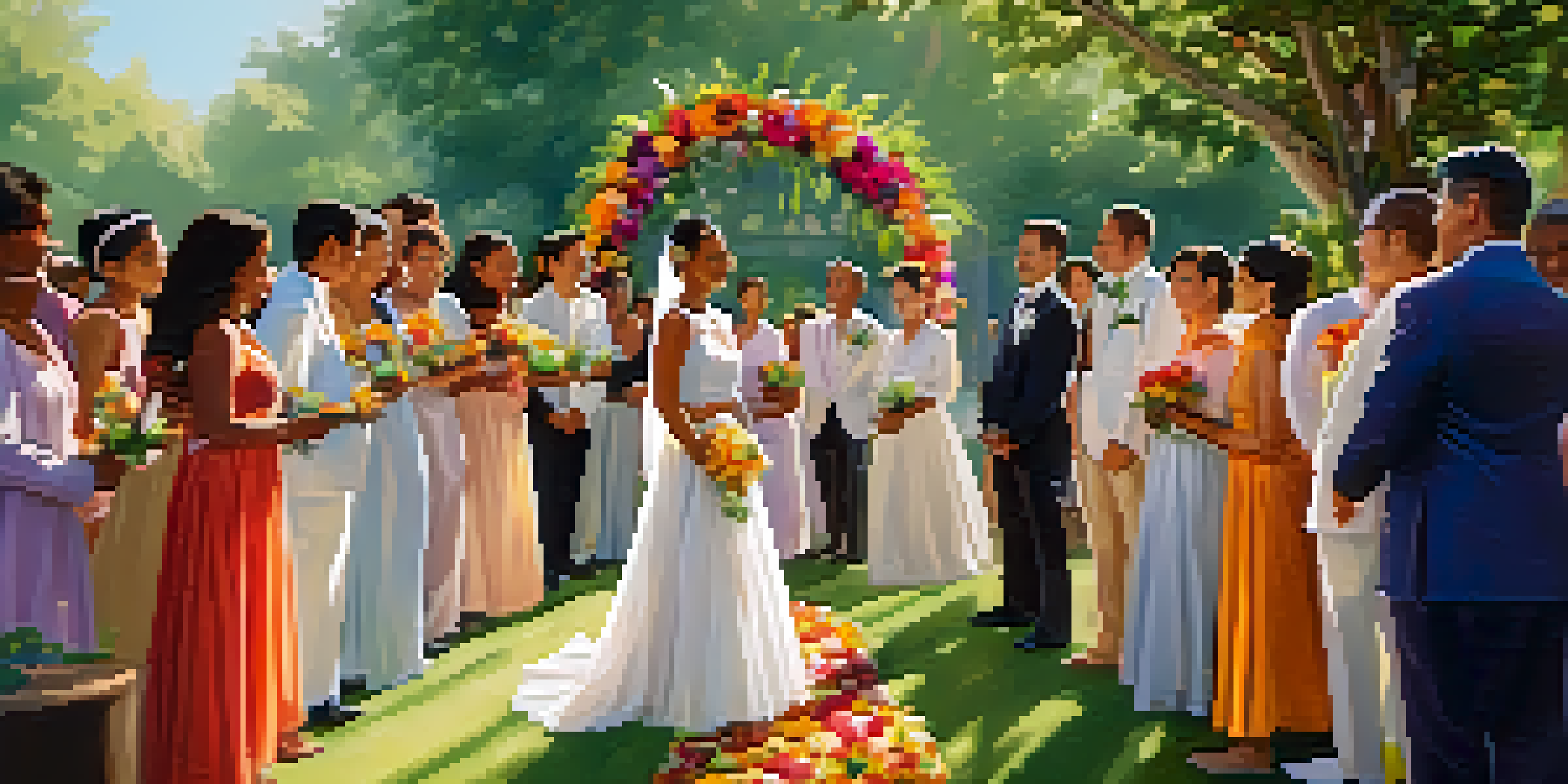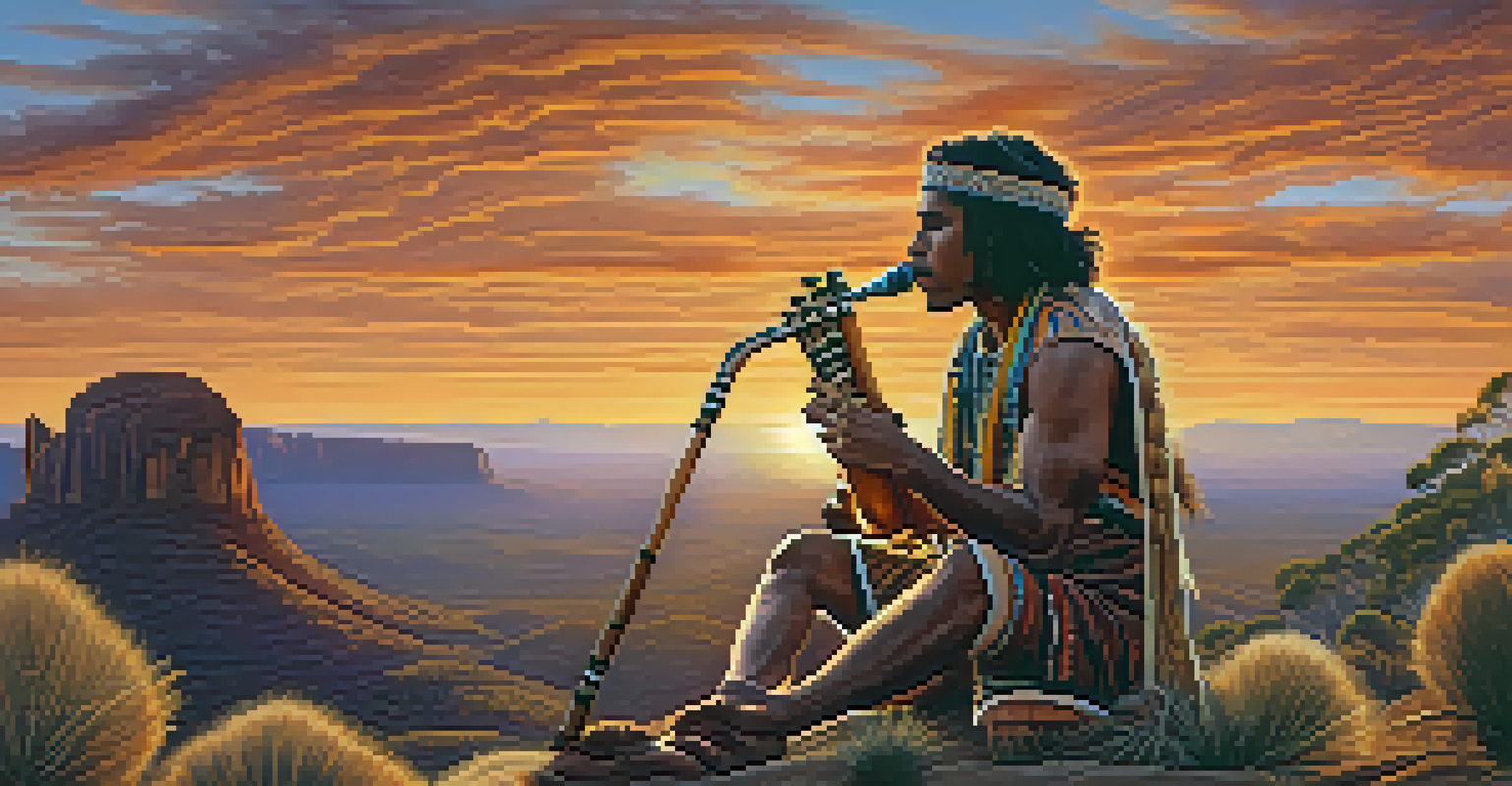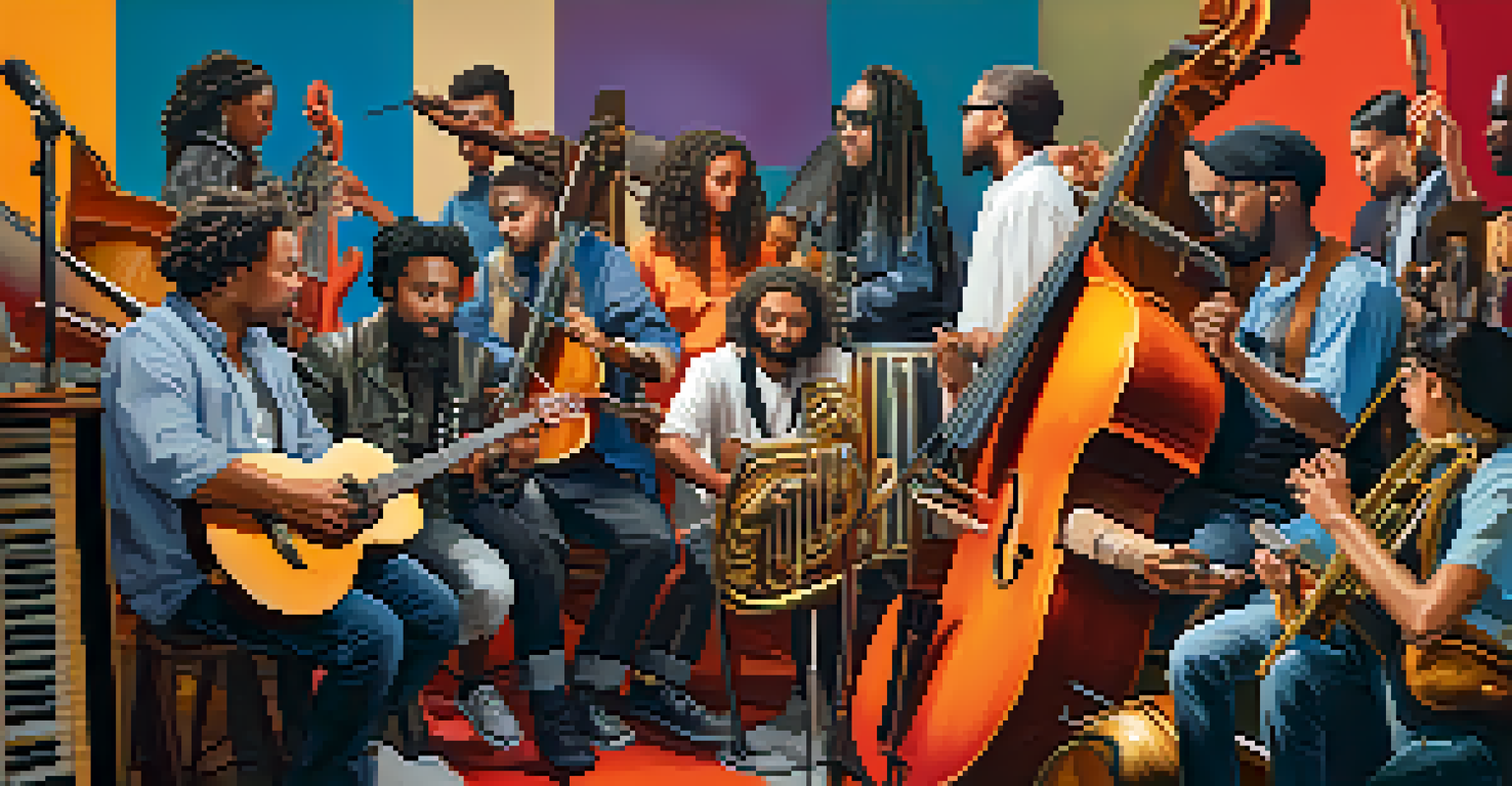Anthropological Insights into Global Music Traditions

Understanding Music as a Cultural Expression
Music serves as a powerful medium for cultural expression, reflecting the values, beliefs, and traditions of a community. Each culture has its unique sound, which tells a story about its history and environment. For instance, the rhythmic drumming of African tribes not only entertains but also communicates social messages and rituals.
Music is the shorthand of emotion.
By studying music, anthropologists can gain insights into the social structures and dynamics within a culture. Various genres, such as folk and classical music, often encapsulate the struggles, triumphs, and aspirations of the people. This makes music an invaluable resource for understanding cultural identity and continuity.
Furthermore, music often evolves as cultures interact, leading to fusion genres that reflect globalization. This blending highlights the adaptability of cultural expressions, illustrating how music can both preserve tradition and embrace change.
The Role of Rituals and Ceremonies in Music
Rituals and ceremonies often incorporate music, making it an essential aspect of communal gatherings. Whether it's a wedding, funeral, or harvest festival, music adds depth and emotion to these significant events. In many cultures, specific songs are reserved for particular occasions, underscoring their importance.

For example, the use of music in Indigenous Australian ceremonies serves not just to entertain but to pass down stories and teach younger generations about their heritage. Each performance is a reminder of their connection to the land and ancestors, emphasizing the role of music in cultural transmission.
Music Reflects Cultural Identity
Music serves as a powerful mirror of a community's values, beliefs, and traditions, encapsulating their history and social dynamics.
These musical rituals can also foster a sense of belonging and community among participants. As individuals come together to sing or dance, they reinforce social bonds and shared identities, showcasing music's power to unite.
Music as a Tool for Social Change
Throughout history, music has been a catalyst for social change, giving voice to the marginalized and oppressed. Protest songs, for instance, have rallied people around causes, from civil rights to environmental justice. This demonstrates how music can serve as a rallying cry, inspiring action and solidarity.
Without music, life would be a mistake.
One notable example is the folk music movement of the 1960s in America, where artists like Bob Dylan used their platform to address social issues. Their songs became anthems for a generation seeking change, illustrating music's ability to resonate beyond entertainment.
Moreover, music can also challenge societal norms and inspire new ways of thinking. By presenting alternative perspectives, musicians can encourage listeners to question the status quo and advocate for reform, proving that music is not just art, but a powerful instrument for change.
The Impact of Technology on Music Traditions
Technology has dramatically transformed how music is created, shared, and experienced. From the invention of the phonograph to today’s streaming services, technological advancements have reshaped global music traditions. This evolution raises questions about authenticity and cultural preservation.
For instance, traditional music styles can be easily recorded and disseminated worldwide, allowing for a broader audience. However, this can also lead to cultural appropriation, where elements of a culture are borrowed without proper understanding or respect. The debate continues around how to honor origins while embracing innovation.
Rituals Use Music to Unite People
Rituals and ceremonies often incorporate music, enhancing communal bonds and preserving cultural heritage through shared experiences.
Additionally, technology facilitates collaboration across cultures, leading to the emergence of new genres. Musicians can now blend sounds from different traditions, creating innovative music that reflects a globalized world. This dynamic interaction showcases both the challenges and opportunities presented by technology in music.
The Influence of Geography on Music Development
Geography plays a crucial role in shaping music traditions, influencing the instruments used, the styles developed, and the themes explored. For example, the availability of certain materials can dictate what instruments are created, from the drums of Africa to the stringed instruments of Asia. These geographic factors contribute to the unique soundscapes of various cultures.
Moreover, the environment can inspire the subjects of songs. Coastal communities might focus on the sea and its bounty, while mountainous regions may celebrate nature's grandeur. This connection between place and music highlights the importance of geography in cultural expression.
As people migrate, they carry their musical traditions with them, creating new hybrid forms that reflect their journeys. This evolution shows how geography, along with social dynamics, contributes to the richness and diversity of global music traditions.
Preservation of Indigenous Music Traditions
Indigenous music traditions are often at risk of being lost due to globalization and cultural homogenization. Many Indigenous communities are making concerted efforts to preserve their musical heritage, which is vital for maintaining their cultural identity. This preservation is not just about saving songs but also about protecting the stories and practices associated with them.
For example, initiatives like workshops and community gatherings are being organized to teach younger generations traditional music. Such efforts ensure that the cultural context and significance of the music are passed down, not merely the melodies. This intergenerational transmission is crucial for the survival of Indigenous identities.
Technology Shapes Music Traditions
Advancements in technology have transformed music creation and sharing, fostering innovation while also posing challenges to cultural preservation.
Moreover, the revival of traditional music can instill pride within communities, reinforcing their connection to their roots. As these musical forms gain recognition, they can also educate broader audiences about Indigenous cultures, fostering appreciation and respect.
The Future of Global Music Traditions
As we look ahead, the future of global music traditions is both exciting and uncertain. The blending of cultures through technology and travel continues to create new musical landscapes, offering fresh sounds and perspectives. However, this evolution also raises concerns about cultural dilution and the loss of unique identities.
The rise of digital platforms allows artists from diverse backgrounds to share their music with the world. This democratization of music can lead to a richer musical tapestry as more voices are heard. However, it also necessitates a careful balance between innovation and the preservation of traditional forms.

Ultimately, the future of global music traditions will depend on how we navigate these challenges. By celebrating diversity and fostering respectful exchanges, we can ensure that music continues to be a vibrant reflection of our shared human experience.